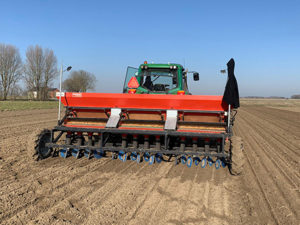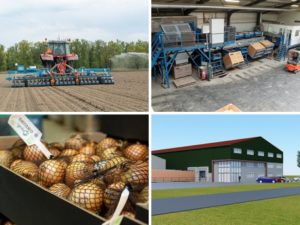“You can’t compare organic and conventional onion marketing. Organic sales involve much more long-term work,” says Wouter Snippe of WeGrowOrganic. That was during the North and Central Netherlands Agricultural Fair’s (LNCN) Onion Day.
Most organic onions are sold to retailers. “A small part goes to health food stores or processing facilities. But the bulk is at supermarket level. Retailers want product certainty. So, they raise the alarm sooner and want longer-term deals.”
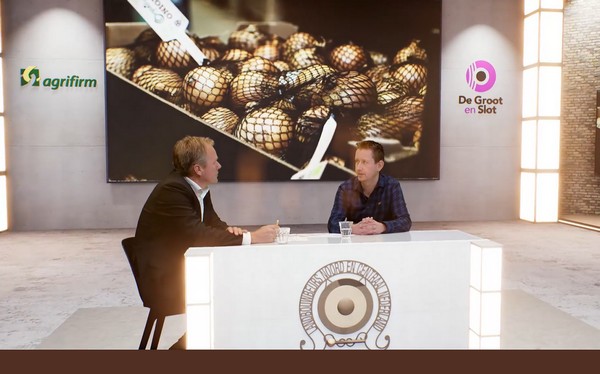
Regional
“In many countries, regional products are becoming increasingly important. I’ve seen entire German supermarkets filled with regional organic products. These are marketed too. On the one hand, this represents a threat. As long as there’s local produce available, those countries won’t take Dutch onions,” the organic grower continues.
“On the other hand, that presents opportunities. There’s a growing resistance to overseas imports. When there are no more regional products available, Dutch onions are preferred. That, therefore, represents a huge export market for Dutch organic farmers. You just have to prove you can deliver. And you have to talk to customers and explain the story – from cultivation to product delivery.”
“Also, retail buyers often do last-minute transactions. That causes panic when things don’t go as planned. That requires flexibility and the ability to quickly respond to demand. Thanks to our new build, we’ve anticipated that. Now we can always meet demand,” Wouter explains.
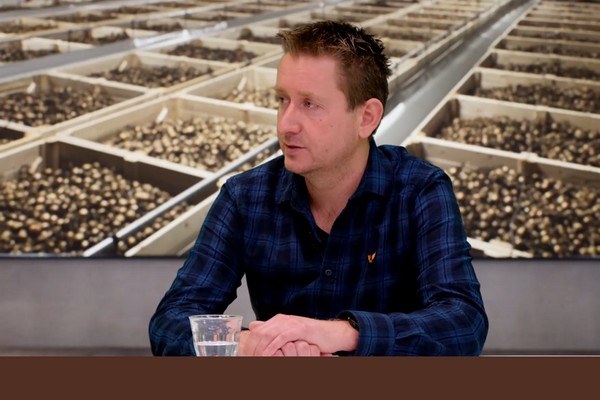
New building
WeGrowOrganic specializes in onions, potatoes, and pumpkin. But, it grows many other kinds of vegetables. Its new building means it could begin focusing on its end goal – the export market. “We see increased opportunities in that market. The European organic onion market in Europe is massive. I’m sure we can easily sell everything we grow here in the Netherlands. That’s if we can stretch the end of the season by a week or two.”
“Organic onions, naturally, sell for higher prices. So, people demand higher quality too,” adds Wouter. WeGrowOrganic retains control of this quality. They do so by growing, sorting, processing, and packing their organic onions entirely in-house. It also does so for fellow growers. They then do their own European-wide marketing from their newly built premises in the Netherlands. “Austria, Germany, Scandinavia, and England, in particular, buy a lot of organic onions.”
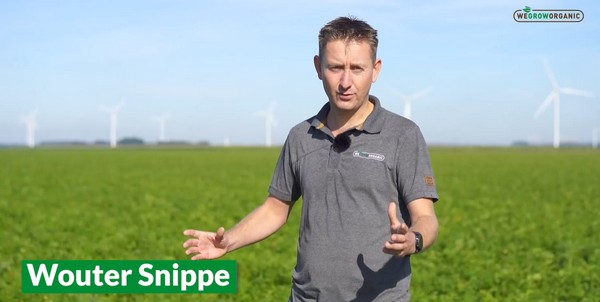
The company can offer organic onions year-round. That is thanks to condensation drying and a new sorting warehouse. There, the company sorts the onions in a temperature-controlled environment. “We must be able to supply these onions until the regional product is available again. We prefer using Dutch onions to do so throughout the year. That’s largely possible.”
“But each country considers the product’s quality differently. In Scandinavia, for instance, they’re more pragmatic than in England. There, products are rejected if they’re not perfect. We have to be careful not to get products that don’t meet local standards back. So, we can’t risk supplying Dutch onions to the UK in the season’s final three weeks,” says Snippe.
The company, thus, grows a small number of these onions in Egypt and Spain. “Our clients, however, prefer European products. So we’re eager to expand in Spain. That means we’ll always have a Plan B. Especially in a year like this, where Dutch volumes are disappointing.”
Logistics
The all-too-familiar logistical issues did not affect WeGrowOrganic as much. “That’s because the organic onion market is mainly in Europe. Our trucks travel far shorter distances. Here too, everything’s becoming pricier. And there’s a shortage of truck computer chips. However, it’s not nearly as bad as in conventional onion sales. There, you’re dependent on things like container prices,” concludes Wouter.
Author: Jannick Flach
© Freshplaza

